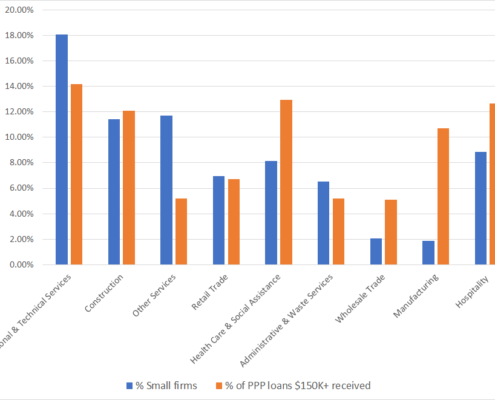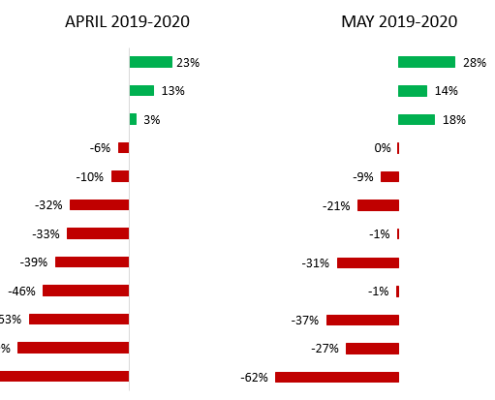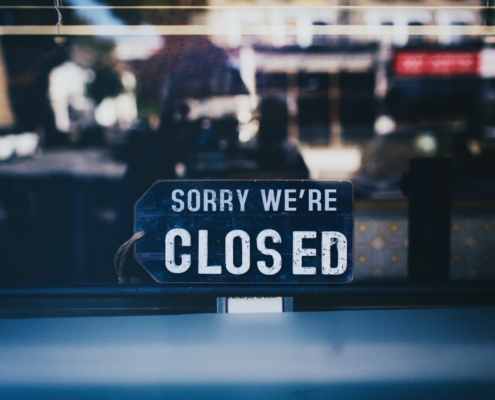
MBTAAnalysis: A look inside the MBTA
0 Comments
/
The MBTA shuttles over a million passengers a day around Greater…
 https://pioneerinstitute.org/wp-content/uploads/CloseupClock-1.jpg
739
1244
Mary Connaughton
https://pioneerinstitute.org/wp-content/uploads/logo_440x96.png
Mary Connaughton2017-02-20 12:34:192017-02-21 09:47:58The Clock is Ticking…….
https://pioneerinstitute.org/wp-content/uploads/CloseupClock-1.jpg
739
1244
Mary Connaughton
https://pioneerinstitute.org/wp-content/uploads/logo_440x96.png
Mary Connaughton2017-02-20 12:34:192017-02-21 09:47:58The Clock is Ticking…….
Ballot Question 1: Risks & Regulations Regarding Right to Repair
Join host Joe Selvaggi and security technologist Prof. Bruce Schneier as they discuss risks associated with car telematics as well as how best to ensure public safety in the future of the internet of everything.

Small Business Life Support: Policy Relief for Firms Sickened by COVID?
Host Joe Selvaggi talks with Pioneer Institute’s Andrew Mikula and Retailers Association of Massachusetts' Jon Hurst about the state of small business in Massachusetts six months into the pandemic.

Pioneer Report Underscores Wide Disparities in Economic Performance between Industry Sectors in Massachusetts
Service-based industries have significantly outperformed manufacturing and other traditional blue-collar economic sectors in Massachusetts since 2008, according to a new report from Pioneer Institute that draws on data from the MassEconomix web tool. In “Broad Industry Sector Trends in Massachusetts, 1998-2018,” two decades of data show fluctuating employment changes across the state, as well as changes in firm size and the types of firms disproportionately headquartered in the Commonwealth.

Study: Economic Recovery from COVID Will Require Short-Term Relief, Long-Term Reforms
As the initial economic recovery from the COVID-19 pandemic has slowed, a new study from Pioneer Institute finds that governments must continue to provide short-term relief to stabilize small businesses as they simultaneously consider longer-term reforms to hasten and bolster recovery – all while facing a need to shore up public sector revenues.
 https://pioneerinstitute.org/wp-content/uploads/Dollar-bills-1.jpg
1079
1527
Thomas O'Rourke
https://pioneerinstitute.org/wp-content/uploads/logo_440x96.png
Thomas O'Rourke2020-08-14 10:00:422020-08-13 09:52:45Massachusetts PPP Benefits Big Businesses, Data Called Into Question
https://pioneerinstitute.org/wp-content/uploads/Dollar-bills-1.jpg
1079
1527
Thomas O'Rourke
https://pioneerinstitute.org/wp-content/uploads/logo_440x96.png
Thomas O'Rourke2020-08-14 10:00:422020-08-13 09:52:45Massachusetts PPP Benefits Big Businesses, Data Called Into Question
Where Did the Largest PPP Loans Go? Assessing the distribution of loans by industry
The coronavirus has wreaked havoc on all parts of the economy,…

Non-Profits Facing COVID-19: Charles River’s Esplanade Association on Why It’s No Walk in the Park
Join host Joe Selvaggi as he talks with Esplanade Association’s executive director Michael Nichols about how he and other non-profits adapt to a surge in demand for services while coping with a collapse in fundraising opportunities.

Data, Attitudes, and Ecommerce: Noteworthy trends in retail for the present and future
Following the July 16th release of the June Retail Sales Report…

New Study Offers Guide to Recovery in MA Retail, Accommodation and Tourism, and Restaurant Sectors
A new guide to economic recovery in the retail and hospitality industries published by Pioneer Institute calls for the federal and state governments to consider consumption-based refundable tax credits for brick and mortar businesses; the federal government to conduct a detailed study of the costs and benefits of suspending employer-side payroll taxes; businesses to pay special attention to developing and marketing their cleanliness, hygiene and contactless procedures; and third-party customer review sites to include comments about the implementation of COVID safety measures to provide options and reassurance to safety-minded consumers
PPP Loan Tracker
To advance transparency regarding public funds, Pioneer Institute developed this Paycheck Protection Plan Loan Tracker. This web tool allows you to track PPP loans by recipient, lender, location, industry, and loan range. According to this data, from the Small Business Administration, 18,177 Massachusetts small businesses received PPP loans, which the companies claim retained 738,613 jobs.

Pioneer Institute Study Calls for Streamlining State Sales Tax Revenue Collection
At a time when state tax revenues are plummeting, a plan to modernize sales tax collection could get money into state coffers more quickly, according to a new policy brief published by Pioneer Institute.

Even for the most remote part of Massachusetts (Franklin County), it’s far from business as usual
The Connecticut River valley is home to some of the most productive…

Study: Safely Reopening Office Buildings Will Require Planning, Innovation
Safely bringing employees back into workplaces presents a significant challenge for employers located in office buildings, particularly when it comes to elevator operations and building entry and exit. To address the challenge, managers must develop plans to control the flow of workers, according to a new study published by Pioneer Institute.

38.8 percent of the Massachusetts workforce and 28.3 percent of the U.S. workforce have filed unemployment claims over the past ten weeks.
Data released today by the U.S. Department of Labor shows that 38.8 percent of the Massachusetts workforce and 28.3 percent of the U.S. workforce have filed unemployment claims since the COVID-19 unemployment surge began ten weeks ago.

Once anchored by higher education, Hampshire County, MA finds itself out of work after a cancelled semester
The 38,000 college and university students at the Five College…

In Hampden County, COVID-19 exacerbates a stark employment divide between urban and rural areas
Hampden County, Massachusetts, home of Western New England’s…

As stay-at-home orders remain in place at the start of summer tourist season, COVID-19 takes a bite out of resort towns’ economies
Last month, Pioneer Institute showed that the hospitality and…

Survey Suggests Demand for Telecommuting After COVID-19 Crisis
Citing an avoidance of the commute and more flexible scheduling, nearly 63 percent of respondents to Pioneer Institute’s survey, “Will You Commute To Work When The COVID-19 Crisis Is Over?” expressed a preference to work from home one day a week, and a plurality preferred two to three days a week, even after a COVID-19 vaccine is available. Respondents cite social isolation as the biggest drawback of remote work. The survey was conducted from April 22nd to May 15th, and received responses from over 700 individuals.

Today’s Bureau of Labor Statistics estimate of a 15.1 percent unemployment rate in April only reflects half of Massachusetts’ COVID-19 unemployment surge
Today's release by the Bureau of Labor Statistics of a 15.1%…

32.9 percent of the Massachusetts workforce and 26.2 percent of the U.S. workforce have filed unemployment claims over the past nine weeks.
Data released today by the U.S. Department of the shows that 33.0 percent of the Massachusetts workforce and 26.2 percent of the U.S. workforce have filed unemployment claims since the COVID-19 unemployment surge began nine weeks ago.

Hubwonk Ep. 6: COVID-19 and Commerce: Main Street’s Concerns with Governor Baker’s Course
In this episode of Hubwonk, Host Joe Selvaggi & Pioneer Research Analyst Rebecca Paxton to get reactions to Massachusetts Governor Charlie Baker’s phased reopening, from the leaders of two statewide business organizations, NFIB and Retailers Association of Massachusetts.

Holyoke Soldiers’ Home Study Targets Inadequate Nursing Home Staffing Standards
Standards enforced at the federal and state levels are insufficient to address chronic staffing issues reported by staff and residents’ families at the Holyoke Soldiers’ Home, making that facility particularly vulnerable to the COVID-19 pandemic, according to new Pioneer Institute research.

Where in Massachusetts is being hit hardest by unemployment due to COVID-19?
Pioneer’s new tool, called “COVID Unemployment Tracker,” provides an interactive look at how economic shutdowns in response to the COVID-19 pandemic are affecting jobs and lives across the state of Massachusetts.

The past seven weeks of Massachusetts unemployment claims total 25.8 percent of the civilian workforce.
The U.S. Department of Labor released its weekly report on jobless claims Thursday morning at 8:30 a.m., reporting that Massachusetts received 55,448 initial unemployment insurance (UI) claims during the week ended May 2. This brings the total of regular UI claims filed in Massachusetts since March 14, the beginning of the unemployment surge, to 781,110.

COVID-19 will likely lead to a recession. Can Massachusetts municipal budgets handle one?
Using municipalities' experiences during the Great Recession, a new policy brief examines the likely impact of COVID-19 on local property taxes, as well as political implications for state aid. We list the municipal revenues by category among the least tax-reliant communities in Massachusetts, show the trajectory of tax revenue growth rate in Massachusetts state and local governments, and rank stabilization fund assets per capita among Massachusetts Gateway Cities.

The past six weeks of Massachusetts unemployment claims total 24.0 percent of civilian workforce
The U.S. Department of Labor released its weekly report on jobless claims this morning at 8:30 a.m., reporting that Massachusetts received 70,714 initial unemployment insurance (UI) claims during the week ended April 25. This brings the total of unemployment claims filed in Massachusetts since March 14, the beginning of the unemployment surge, to 725,018.

Report Finds “Reopening Day” in the Commonwealth Will Likely Include Phasing in Businesses and Contact Tracing
New study compares the reopening of three European countries – Austria, Denmark, and Germany – to highlight approaches that could inform the Commonwealth’s reopening strategy.

New jobless claims data shows that Massachusetts unemployment has grown from 2.8% to at least 20.4% in five weeks
Based on today’s jobless claims report, Pioneer Institute projects that the current unemployment rate in Massachusetts is at least 20.4 percent, with a minimum of 762,299 currently unemployed individuals.

Hospitality, Retail Trade, Healthcare Among ‘Most Vulnerable Industries’ in Terms of Unemployment due to COVID-19
Recent data provided by the Massachusetts Executive Office of Labor and Workforce Development show that hospitality, retail trade, healthcare and social assistance, and construction are the industries that have suffered the most unemployment as a result of the coronavirus outbreak, according to the new Pioneer Institute report, “A Look at the Massachusetts Industries that are Most Vulnerable Due to COVID-19.”

Which industry’s workforce has been hurt the most from the COVID-19 outbreak?
Unemployment claims have reached all-time highs in the U.S. recently…
